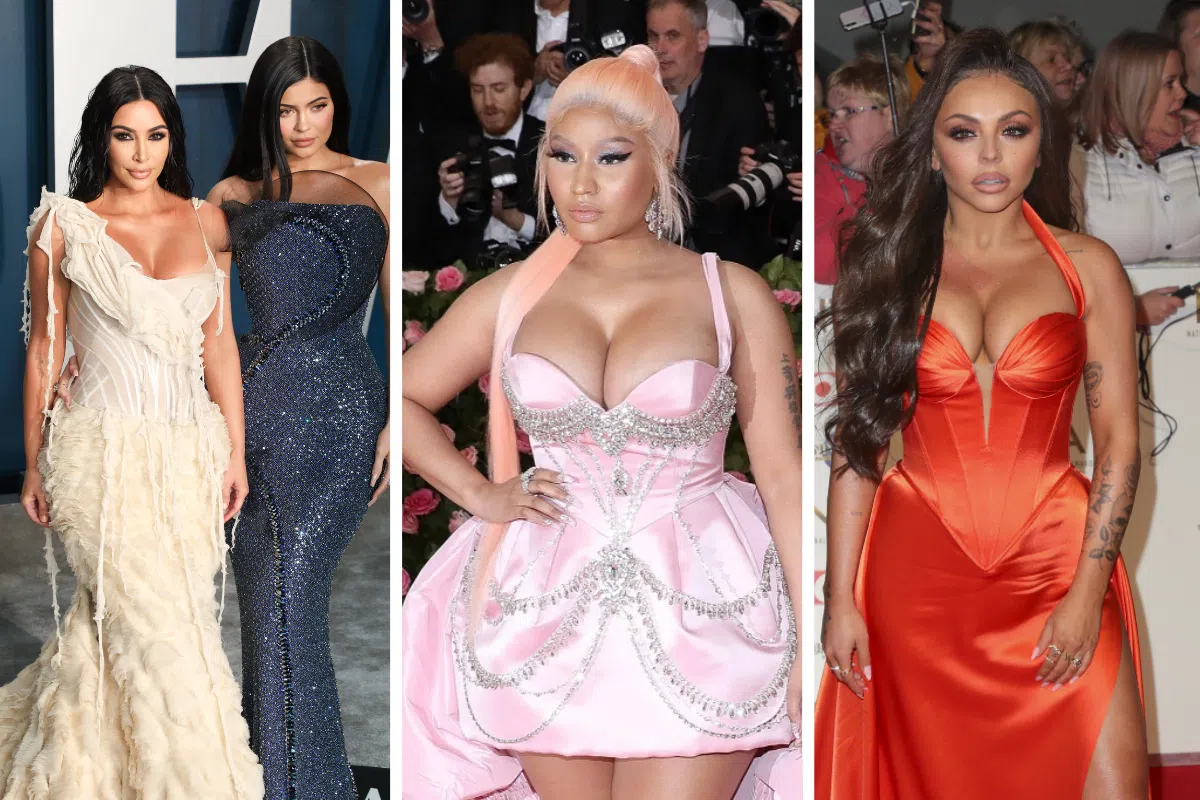A recent study has revealed that the “slim-thick” imagery, portrayed by so many Instagram models and celebrity personalities, is causing young women to have body dissatisfaction. But is this across the board? Are Black women upset about a term coined by them and about them?
The research is called “The effect of physical appearance perfectionism and social comparison to thin-, slim-thick-, and fit-ideal Instagram imagery on young women’s body image” and was conducted by Sarah E. McComb and Jennifer S. Mills for Toronto’s York University.
The bombardment of images of Kim Kardashian, her sister Kylie Jenner and so many other women in the limelight have added to women not liking their natural bodies. The prototype of “slim-thick” features an image of “a curvier or more full-body type, characterized by a small waist and flat stomach but large butt, breasts, and thighs.”
Researchers looked at how 2021 social media trends show how certain hashtags celebrating these unrealistic body types are super popular: “the hashtags #thick, #thicc and #slimthick have 6.2 million, 3.4 million, and 1 million posts on Instagram respectively, and the hashtag #slimthicc has 134 million tags on TikTok.”
Moreover, there are two trends or manipulations, the study says, that really add to the unrealistic body imagining. It is a) plastic surgery and b) apps that can digitally alter photos, “thus making the thin ideal even thinner and less attainable for the average woman.”

But one might also ask, who is the average woman and consider that many women of a certain race are naturally fit into this category. One might also ask why Kardashian, a woman of Armenian descent and whose natural body is curvey, was considered “ghetto” and “not as attractive” as her best friend Paris Hilton back in the day— is a problematic standard of beauty because she is “slim-thick.” Many of the attributes of the slim-thick body types are commonplace with women of the African diaspora, Blacks, and Latinas.
The rise of their image, mixed with a lot of levels of commercialism and brand exaggeration, has been pushed by Hip-Hop culture and now is becoming a norm. Norms probably should be considered a trend or fetish.
For years, women of color have been excluded from beauty conversations because of their curvy, “slim-thick” bodies. Now that people are trying to look like them, sad because they can’t and possibly hurting themselves trying to achieve the look, is that not a socio-political snapshot of the browning of America— and some people being left out?
According to Healthline, Black and brown women’s bodies are different than women with European backgrounds, so much so the standard medical Body Mass Index chart has to be changed to account for their body types. It states, “The BMI was developed based on studies in white populations, its ability to accurately classify overweight and obesity in other populations has been questioned.”
“The BMI may be considered inherently racist,” it further states. “Its metrics are based on a narrow study population of white people and don’t account for differences in body composition between ethnic groups, but it’s been used to classify obesity and “health” in these groups anyway.”
Talking about body identity and words like “average” and “most” is harmful.
An honest conversation about the “Slim-Thick” explosion has to factor in the recent explosion in plastic surgery in Hip-Hop and the Black and brown community. The dangers of surgery are costly — in your pockets and to your body.
There was a time when big butts were shamed … where the Coca-Cola body type made Black teens feel embarrassed … and where if you didn’t look uber thin, white, and Paris Hilton-ish, you were not considered beautiful.
The real conversation for Black women with their bodies is an issue of the exploitation of hypersexuality vs. sexual liberation, more so than if her curves are making me feel bad.
People like Megan thee Stallion, Doja Cat, Flo Milli, Rubi Rose, Cardi B, may have some work done, but their bodies actually give body confidence to girls who can’t help but have a fatty, little bitty waist and curves all over.
Lizzo is definitely shifting the standard of beauty, and taking the blows by the public for bucking the system (making great strides and severe hiccups). By embracing those African features, that once had Sarah “Saartjie” Baartman (aka the Venus Hottentot) placed in a circus, zoo, and museum as a freak show exhibition, there are some women who are finally feeling accepted in the dominant ideal of beauty.

Women no longer have to hide their curves, be tomboys or conform to a Eurocentric standard of beauty. The stuff they used to hide in girdles and body shapers, now Drake shouts out in songs, “I like my girls, B##!”

